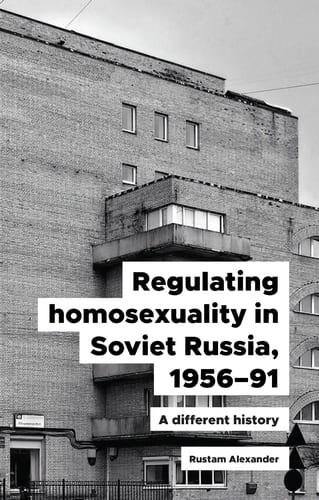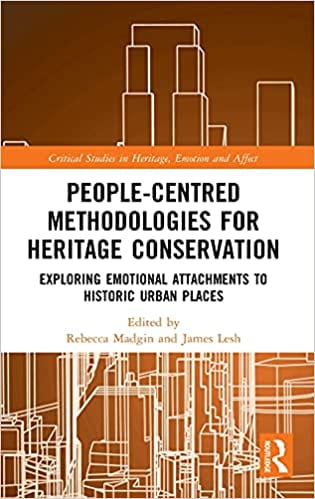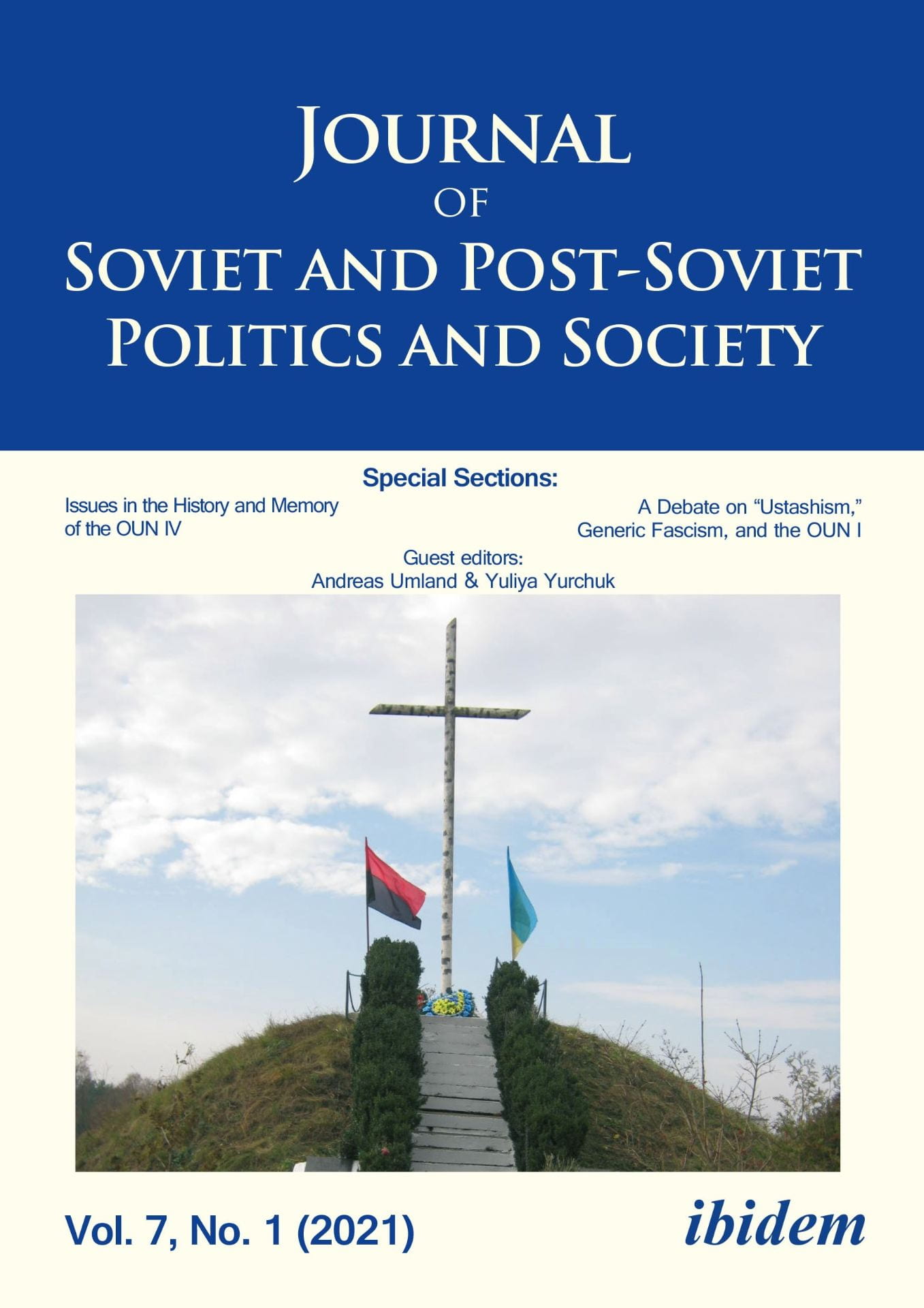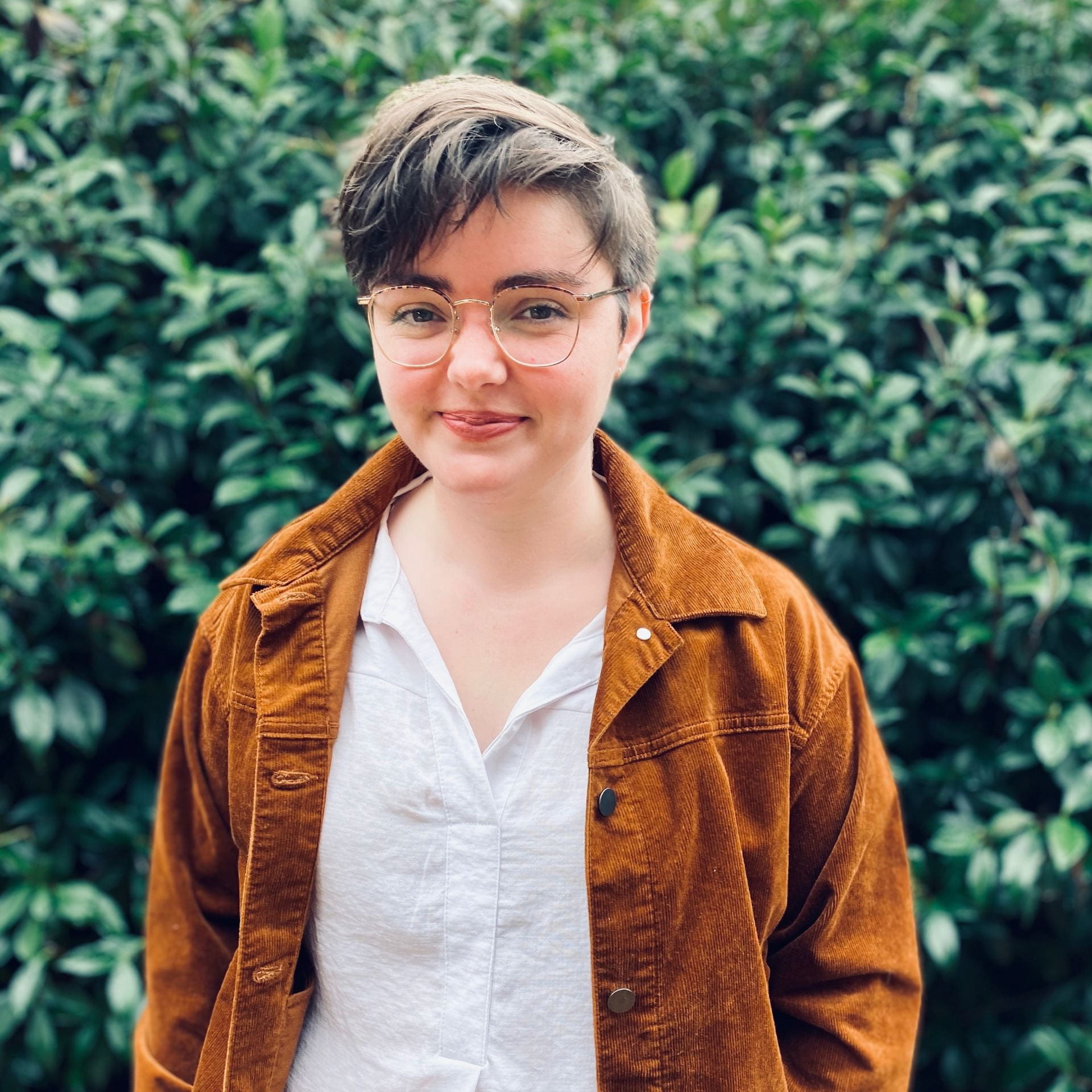
SHAPS Digest (May 2021)
Angel Alcalde (History) (@Angel_Alcalde) was interviewed on the rise of Hitler and the Second World War, for the podcast Recorded Time.
Angel Alcalde was also featured on the podcast The Strategy Bridge, where he discussed his work on the fascist myth of the war veteran.
Bronwyn Beech Jones (Hansen PhD scholar in History) discussed her research on the life stories of women and teenage girls in early twentieth-century Sumatra, for the Faculty of Arts Alumni website.
Liam Byrne (Honorary, History) (in his capacity as ATUI historian) presented a video on the life and legacy of Bob Hawke.
To mark National Archaeology Week, the Classics & Archaeology Postgraduate Society published Spotlight on Students, a series of profiles of current postgraduate researchers.
Mark Edele (Hansen Chair in History) (@EdeleMark) published a review of Sean McMeekin’s Stalin’s War: A New History of World War II.
Catherine Gay (Hansen PhD scholar in History) (@catherinegay) was interviewed by the podcast Sew What? about her research on schoolgirl needlework samplers and stitching in ninteenth-century Australia.
Louise Hitchcock (Classics & Archaeology) gave a presentation for the University of Reading’s Covid+Collapse seminar series, ‘What COVID-19 Can Tell Us about the Bronze Age (12th cent) Collapse’.
Louise Hitchcock also published an opinion piece in Neos Kosmos on Princess Diana as the embodiment of the Greek concept of kleos, or glory for great deeds achieved.
Max Kaiser (PhD in History, 2019) and Jordy Silverstein (Honorary, History) were interviewed about the history of the Australian Jewish community, and connections with Indigenous movements in anti-racism, anti-fascism and other forms of activism.
Tom Keep (PhD candidate, Classics & Archaeology) and his work on photogrammetry was featured by the Hellenic Museum.
Dale Kent (Professorial Fellow, History) was interviewed for ABC Radio’s Conversations program about her recently published memoir, The Most I Could Be: A Renaissance Story (Melbourne University Press).
James Lesh (PhD in History, 2018, now Research Fellow, Australian Centre for Architectural History, Urban and Cultural Heritage, School of Design) (@jameslesh) and Cameron Logan published an article in the Conversation, commenting on the recent announcement of plans for an NSW heritage review and reflecting on the history and purposes of heritage legislation.
Stuart Macintyre published a review of Sheila Fitzpatrick’s new book, White Russians, Red Peril: A Cold War History of Migration to Australia (La Trobe University Press), in the Australian Book Review (subscriber-only).
Mia Martin Hobbs (PhD in History, 2018), was interviewed by Oral History Review about her work with Vietnam war veterans and ethical issues in oral history around anonymity, consent, and power dynamics.
Peter McPhee (@PeterMcPhee7) published an article in Australian Book Review on the importance of the National Archives of Australia. He also published a review of Alexander Mikaberidze’s The Napoleonic Wars: A Global History (Oxford University Press) (subscriber-only).
Tim Parkin (Classics & Archaeology) gave a public lecture at the University of Queensland, “The Splendour and the Squalor of Living in Ancient Rome”. We all know something about the splendour of ancient Rome – an image still fostered in part by the monuments that survive as well as by modern media representations. But what was it really like to live in the ancient city? This illustrated talk attempts to evoke not only the wonder but also the reality of living in ancient Rome two millennia ago. Via a range of types of testimony, some only very recently discovered, it is possible to go beyond imagined ideals to recreate something of the at times grim and often smelly daily realities for an ordinary inhabitant of the Roman empire. You can watch a recording of the lecture via UQ eSpace.
Carla Pascoe Leahy (ARC DECRA Fellow, History) (@C_PascoeLeahy) published an article in the Conversation on the history of maternal radicalism: ‘Looking for the Perfect Mother’s Day Gift? Why not smash the patriarchy‘.
Tony Ward (Honorary, History) was interviewed for the ABC’s Nightlife program on his research into the history of Australian Rules football and its connection to the campaign for the eight-hour working day.
Academic Publications
Rustam Alexander (PhD in History, 2018), published a monograph, Regulating Homosexuality in Soviet Russia, 1956–91: A Different History (Manchester University Press).
 This groundbreaking book challenges the widespread view that sex and homosexuality were unmentionable in the USSR. The Khrushchev and Brezhnev eras (1956–1982) have remained obscure and unexplored from this perspective. Drawing on previously undiscovered sources, Alexander fills in this critical gap.
This groundbreaking book challenges the widespread view that sex and homosexuality were unmentionable in the USSR. The Khrushchev and Brezhnev eras (1956–1982) have remained obscure and unexplored from this perspective. Drawing on previously undiscovered sources, Alexander fills in this critical gap.
The book reveals that from 1956 to 1991, doctors, educators, jurists and police officers discussed homosexuality. At the heart of discussions were questions which directly affected the lives of homosexual people in the USSR. Was homosexuality a crime, disease or a normal variant of human sexuality? Should lesbianism be criminalised? Could sex education prevent homosexuality? What role did the GULAG and prisons play in homosexuality across the USSR? These discussions often had practical implications — doctors designed and offered medical treatments for homosexuality in hospitals, and procedures and medications were also used in prisons.
Dale Kent (Professorial Fellow, History) published The Most I Could Be: A Renaissance Story (Melbourne University Press).
 “Of all the exhilarating slogans that galvanised women in the 1970s, determined to change ourselves and the world, the one that really inspired me was: ‘Be the most that you can!’ Even as a small girl, I was eager to be the most I possibly could. This desire drove my life.” Raised in an aspirational Australian working-class family of Christian Scientists, in the 1960s Dale Kent embarked on a lifelong struggle to fulfil the desire of many women of her generation – to be the most she could be. Despite discrimination and self-doubt, she escaped her controlling family and established an international career as a historian of the Florentine Renaissance. But she failed to liberate herself from the crippling views of women, love and sex she had internalised in childhood. Craving independence and sexual fulfilment, Kent left her child with her husband and started afresh in the United States on an academic road trip that took in Berkeley, Harvard, Princeton and the National Gallery of Art. Her story, both poignant and darkly comical, traces a counterpoint between increasing professional success, a desperate search for a sexual soulmate and a way back to her daughter.
“Of all the exhilarating slogans that galvanised women in the 1970s, determined to change ourselves and the world, the one that really inspired me was: ‘Be the most that you can!’ Even as a small girl, I was eager to be the most I possibly could. This desire drove my life.” Raised in an aspirational Australian working-class family of Christian Scientists, in the 1960s Dale Kent embarked on a lifelong struggle to fulfil the desire of many women of her generation – to be the most she could be. Despite discrimination and self-doubt, she escaped her controlling family and established an international career as a historian of the Florentine Renaissance. But she failed to liberate herself from the crippling views of women, love and sex she had internalised in childhood. Craving independence and sexual fulfilment, Kent left her child with her husband and started afresh in the United States on an academic road trip that took in Berkeley, Harvard, Princeton and the National Gallery of Art. Her story, both poignant and darkly comical, traces a counterpoint between increasing professional success, a desperate search for a sexual soulmate and a way back to her daughter.
James Lesh (PhD in History, 2018, now Research Fellow, Australian Centre for Architectural History, Urban and Cultural Heritage, School of Design) (@jameslesh) co-edited with Rebecca Madgin a new volume, People-Centred Methodologies for Heritage Conservation: Exploring Emotional Attachments to Historic Urban Places (Routledge).
 This book presents methodological approaches that can help explore the ways in which people develop emotional attachments to historic urban places. With a focus on the powerful relations that form between people and places, the book uses people-centred methodologies to examine the ways in which emotional attachments can be accessed, researched, interpreted and documented as part of heritage scholarship and management. It demonstrates how a range of different research methods drawn primarily from disciplines across the arts, humanities and social sciences can be used to better understand the cultural values of heritage places. In so doing, the chapters bring together a series of diverse case studies from both established and early-career scholars in Australia, China, Europe, North America and Central America. These case studies outline methods that have been successfully employed to consider attachments between people and historic places in different contexts.
This book presents methodological approaches that can help explore the ways in which people develop emotional attachments to historic urban places. With a focus on the powerful relations that form between people and places, the book uses people-centred methodologies to examine the ways in which emotional attachments can be accessed, researched, interpreted and documented as part of heritage scholarship and management. It demonstrates how a range of different research methods drawn primarily from disciplines across the arts, humanities and social sciences can be used to better understand the cultural values of heritage places. In so doing, the chapters bring together a series of diverse case studies from both established and early-career scholars in Australia, China, Europe, North America and Central America. These case studies outline methods that have been successfully employed to consider attachments between people and historic places in different contexts.
Sean Scalmer (History) co-edited (with Stefan Berger and Christian Wicke) a new volume, Remembering Social Movements: Activism and Memory (Routledge).
 A detailed historiographical and theoretical review of the field introduces the reader to five key concepts to help guide analysis: repertoires of contention, historical events, generations, collective identities, and emotions. The book examines how social movements act to shape public memory as well as how memory plays an important role within social movements through 15 historical case studies, spanning labour, feminist, peace, anti-nuclear, and urban movements, as well as specific examples of ‘memory activism’ from the nineteenth century to the twenty-first century. These include transnational and explicitly comparative case studies, in addition to cases rooted in German, Australian, Indian and American history, ensuring that the reader gains a real insight into the remembrance of social activism across the globe and in different contexts. The book concludes with an epilogue from prominent Memory Studies scholar Ann Rigney.
A detailed historiographical and theoretical review of the field introduces the reader to five key concepts to help guide analysis: repertoires of contention, historical events, generations, collective identities, and emotions. The book examines how social movements act to shape public memory as well as how memory plays an important role within social movements through 15 historical case studies, spanning labour, feminist, peace, anti-nuclear, and urban movements, as well as specific examples of ‘memory activism’ from the nineteenth century to the twenty-first century. These include transnational and explicitly comparative case studies, in addition to cases rooted in German, Australian, Indian and American history, ensuring that the reader gains a real insight into the remembrance of social activism across the globe and in different contexts. The book concludes with an epilogue from prominent Memory Studies scholar Ann Rigney.
Bringing together the previously disparate fields of Memory Studies and Social Movement Studies, this book systematically scrutinises the two-way relationship between memory and activism and uses case studies to ground students while offering analytical tools for the reader.
The volume features contributions by Liam Byrne (‘Memory as Political Intervention: Labor Movement Life Narration in Australia, Jack Holloway and May Brodney’); Iain McIntyre (‘”The FBI Stole My Fiddle”: Song and Memory in US Radical Environmentalism, 1980–95’); and Sean Scalmer (‘Remembering the Movement for Eight Hours: Commemoration and Mobilization in Australia’).
Angel Alcalde (History) published an article, ‘A New Turn: On the Need for a Transnational Interpretation of the Ustaša and the Organization of Ukrainian Nationalists’, in Journal of Soviet and Post-Soviet Politics and Society. This article critiques the theoretical approaches to the problem of fascism in the case of the Ustaša and the Organization of Ukrainian Nationalists, offered by Oleksandr Zaitsev, Tomislav Dulić and Goran Miljan. The article poses objections to the adoption of an Griffinian ideal type of fascism. Instead, it argues that transcending comparison and embracing a transnational perspective that rehistoricises the political phenomena at play will contribute to achieving a better understanding of the complex history of fascism, including the Ustaša and OUN.
Mike Arnold (HPS) co-authored (with Lucy A. Sparrow and Martin Gibbs) a paper, ‘The Ethics of Multiplayer Game Design and Community Management: Industry Perspectives and Challenges‘, published in the Proceedings of the 2021 CHI Conference on Human Factors in Computing Systems.
Game industry professionals are frequently implementing new methods of addressing ethical issues related to in-game toxicity and disruptive player behaviours associated with online multiplayer games. However, academic work on these behaviours tends to focus on the perspectives of players rather than the industry. To fully understand the ethics of multiplayer games and promote ethical design, we must examine the challenges facing those designing multiplayer games through an ethical lens. To this end, this paper presents a reflexive thematic analysis of 21 in-depth interviews with games industry professionals on their ethical views and experiences in game design and community management. We identify a number of tensions involved in making ethics-related design decisions for divided player communities alongside current game design practices that are concerned with functionality, revenue and entertainment. We then put forward a set of design considerations for integrating ethics into multiplayer game design.
Julie Fedor (History) published an article, ‘”Historical Falsification” as a Master Trope in the Official Discourse on History Education in Putin’s Russia‘, in a special issue on Remembering the Second World War in Post-Soviet Educational Media, guest edited by Barbara Christophe, Journal of Educational Media, Memory and Society.
This article explores a key claim underpinning Russian official memory politics, namely, that history, especially the history of the Second World War, is being deliberately targeted by Russia’s enemies in a campaign of ‘historical falsification’ aimed at, among other things, undermining Russian sovereignty, especially by distorting young people’s historical consciousness. Although ‘historical falsification’ is an important keyword structuring the official discourse on history, memory and identity in contemporary Russia, it has received little scholarly attention. In this article, via an analysis of official rhetoric and methodological literature aimed at history teachers, I investigate the ideological functions performed by the concept of ‘historical falsification’. I show how it reinforces a conspiratorial vision of Russia as a nation under siege, while simultaneously justifying the drive toward greater state control over history education. This discussion also has broader significance as a case study of the ideological uses of history education by a hybrid authoritarian state that claims (at least some of the time) to uphold principles of pluralism and intellectual freedom and hence faces particular challenges when justifying its drive for increased state control over historical narratives and interpretations. In this case, these challenges have been met by positing the existence of a hostile and systematic campaign to attack Russian sovereignty via the ‘falsification of history’, which demands extraordinary measures in response.
Contradictions and fissures in the official discourse on ‘historical falsification’ make it difficult to translate into concrete teaching methodologies. In the methodological literature, attempts to resolve these difficulties have been made by introducing a distinction between ‘useful’ patriotic myths and ‘harmful’ myths (‘falsification’), a distinction which rests on the central criterion of the given historical narrative’s relation to state authority. It remains to be seen how and to what degree the official discourse on ‘historical falsification’ will be implemented in practice in schools, but even if only in the form of patriotic cant to be spouted in official settings, the concept plays an important role in shaping the ideological climate in which history teaching takes place, and its corrosive effects on the state of historical scholarship and debate are only too clear.
Dan Halliday (Philosophy) published an article, ‘On the (Mis)Classification of Paid Labor: When Should Gig Workers have Employee Status?‘ in Politics, Philosophy & Economics.
The emergence of so-called ‘gig work’, particularly that sold through digital platforms accessed through smartphone apps, has led to disputes about the proper classification of workers: should platform workers be classified as independent contractors (as platforms typically insist), or as employees of the platforms through which they sell labour (as workers often claim)? Such disputes have urgency due to the way in which employee status is necessary to access certain benefits such as a minimum wage, sick pay and so on. In addition, classification disputes have philosophical significance because their resolution requires some foundational account of why the law should make a distinction between employed and freelance workers in the first place. This paper aims to fill this foundational gap. Central to it is the idea that employment involves a worker ceding certain freedoms in return for a degree of security, at least with respect to income. Insofar as the misclassification objection has force against digital platforms, it is when a platform is attempting to have it both ways: workers are giving up freedom but not being granted a proportionate increase in security. As Dan explains, this approach offers some flexibility as to how actual disputes might be resolved – justice may be indifferent between whether platforms offer greater security or permit workers greater freedom, provided they do at least one of these things.
Max Kaiser (PhD in History, 2019) (@maxyka) and Lisa Milner published an article, “‘Part of What We Thought and Felt’: Antifascism, Antisemitism and Jewish Connections with the New Theatre,” Labour History: A Journal of Labour and Social History.
For much of the twentieth century, the six branches of the New Theatre in Australia presented left-wing theatre within a culture that was largely resistant to their ideas. Their orientation was explicitly pro-working class, their support base including the Communist Party and left-wing trade unions. Like radical theatres in other nations, including the Unity Theatre in Britain, the New Theatre had strong connections to Jewish culture and theatre enterprises, and featured Jewish writers, actors, values and themes. Left-wing, anti-fascist scripts written by Jews in Australia as well as Britain and the USA were often staged. This article discusses the New Theatre’s concerns with antisemitism and Jewish politics focussing on selected plays by Laurence Collinson, David Martin and Oriel Gray. These plays provide us with an ideal prism through which to analyse Jewish left-wing and anti-fascist ideas as they were refracted through a transnational left-wing theatre movement.
Dang Nguyen (PhD candidate, HPS) co-authored an article with Mike Arnold (HPS) and Richard Chenhall, ‘The Internet as Non-Biomedical Milieu: Production of Alternative Health Techno-Social Spaces and the Persistence of Marginalised Medical Practices‘, in the journal Health and Place.
This paper describes how spatial understandings of the internet (i.e. the internet is a ‘space’) enable the persistence of marginalised medical practices. By tracing different accounts of the internet as space among practitioners and followers of diện chẩn, an emergent Vietnamese unregulated therapeutic method, we show how the logic of space circumscribes an alternative techno-social site for marginalised medical practices, transforms the private experience of being alone with technology into being-in-space, spiritualises the internet as a conduit of healing power, and mediates transnational health mobility among the Vietnamese diaspora. Drawing on interviews and ethnographic participation in Vietnam and the US, we demonstrate how the internet can be understood as non-biomedical milieu – a field of determination that conjoins heterogenous interventions on health-related eventualities outside of structured and institutionalised biomedical practices. This in vivo conceptualisation of the internet as space offers a point of convergence against the bifurcation of information as abstract and technology as concrete. A spatial conceptualisation highlights the embeddedness of health knowledge on the internet and shows how techno-social interrelations produce different spaces of multiplicity, which constitute a favourable milieu for medical practices outside of the biomedical institution to persist.
Carla Pascoe Leahy (ARC DECRA Fellow, History) published an article, ‘The Afterlife of Interviews: Explicit Ethics and Subtle Ethics in Sensitive or Distressing Qualitative Research‘, Qualitative Research.
When conducting interviews about sensitive subject matter such as family life, powerful emotions may arise. The kinds of unexpected distress that can surface in interviews concerning topics laden with personal significance are different to the readily anticipated trauma that accompanies interviews in post-crisis or post-conflict situations. This article analyses the ethical considerations that accompany such research, drawing upon literature from oral history and qualitative sociology. The article traces ethical issues during the temporal phases of qualitative research – before, during and after an interview – before proposing three strategies that interviewers can adopt to help protect narrators from ongoing harm or distress after an interview. Such ethical safeguards include the self-interview, the post-interview follow-up with the narrator, and adopting an ethics of reciprocity that allows the narrator to feel that they are contributing to a larger purpose through involvement in research.
The latest issue of the journal Australian Historical Studies features an article by Henry Reese (PhD in History, 2019), ‘Protecting the National Soundscape: The Gramophone Industry and the Nation in the 1920s‘. Henry was awarded the 2019 Ken Inglis Postgraduate Prize for this article, which was written with the assistance of the 2019 Australian Historical Association/Copyright Agency bursary.
The article offers a cultural reading of the 1927 Tariff Board inquiry into gramophone record imports. The inquiry was a staging ground for visions of musical uplift in a wholesome and vulnerable nation. The manufacturers animated racialised and gendered rhetoric in service of their proposal to protect the local gramophone industry. The business elites that dominated the Board readily assumed a role as cultural arbiters, drawing on aesthetic predilections to shape trade policy. Two themes emerge: the racialised threat of jazz music, and anxieties regarding mass consumption. This episode highlights the contested nature of modernity in interwar Australia.
Robyn Sloggett, Nicole Tse and Eliza O’Donnell published a conference paper, ‘Authenticity, Instagram and the Artist Archive: Contemporary Approaches to Building a Secure Artist Record in Indonesia’, in J. Bridgland (ed)., Transcending Boundaries: Integrated Approaches to Conservation, ICOM-CC 19th Triennial Conference Preprints, Beijing, 17–21 May 2021, ICOM CC.
The circulation of counterfeit paintings in Indonesia’s art centres remains, as it does across the globe, a sensitive issue that distorts the cultural narrative and threatens the intellectual property of artists and their legacy. This paper focuses on contemporary Indonesian artist Heri Dono and the methods which he has adopted to protect his intellectual property in response to counterfeit paintings on the market bearing his signature. In 2015, Dono established a personal archive at his studio in Yogyakarta in which he has documented his artistic production since 1979. In 2017, in parallel with the development of the archive, the Studio Kalahan Instagram account began publishing images of counterfeit paintings in Dono’s signature style. Informed by interviews with Dono and other contemporary Indonesian artists, this research aims to understand issues surrounding the veracity and legacy of the physical and digital archive and integrated ways of building a secure artist record.
 The latest issue of Journal of Soviet and Post-Soviet Politics and Society (general editor: Julie Fedor (History)) features special sections on ‘Issues in the History and Memory of the Organization of Ukrainian Nationalists’ and ‘A Debate on “Ustashism”, Generic Fascism and the Organization of Ukrainian Nationalists’, both guest edited by Andreas Umland and Yuliya Yurchuk.
The latest issue of Journal of Soviet and Post-Soviet Politics and Society (general editor: Julie Fedor (History)) features special sections on ‘Issues in the History and Memory of the Organization of Ukrainian Nationalists’ and ‘A Debate on “Ustashism”, Generic Fascism and the Organization of Ukrainian Nationalists’, both guest edited by Andreas Umland and Yuliya Yurchuk.
Awards
Nat Cutter (PhD candidate, History) has been awarded the 2021 Hakluyt Society Essay Prize, for his paper, ‘Grateful Fresh Advices and Random Dark Relations: Maghrebi News and Experiences in British Expatriate Letters, 1660–1710’. The paper examines information flows between Britain and the Maghreb – how news was witnessed, gathered, mediated and distributed to British and Maghrebi audiences – to understand the extent to which experienced British residents in the Maghreb influenced public perceptions of the other in both regions. Using little-known manuscript material collected at the British consulates in Tunis and Algiers, it argues that, despite complex and often unreliable transmission routes, expatriates had a key role to play in the detailed, up-to-date and largely polemic-free coverage that appeared in seventeenth-century English periodical news, and that they were key players in the contest over representations of European news in the Maghreb. Shedding light on the everyday processes that governed communication, the paper offers striking new insight into the reciprocal and productive nature of British-Maghrebi interaction in the era of the dreaded Barbary corsairs. The full paper will be published in the journal Cultural and Social History.
 Jessie Matheson (PhD candidate, History) has been awarded the SHAPS Fellows’ Group Annual History Essay Prize for her essay, ‘”Laugh and Grow Fat’: Resistance, Complicity, Fat Bodies, and Community amongst Rural Women in Interwar Western Australia, 1934–1939′, which was published in Lilith: A Feminist History Journal in October 2020.
Jessie Matheson (PhD candidate, History) has been awarded the SHAPS Fellows’ Group Annual History Essay Prize for her essay, ‘”Laugh and Grow Fat’: Resistance, Complicity, Fat Bodies, and Community amongst Rural Women in Interwar Western Australia, 1934–1939′, which was published in Lilith: A Feminist History Journal in October 2020.
“I wish to sincerely thank the SHAPS Fellows’ Group for acknowledging my work with this award. This research was incredibly meaningful to me, and it is really gratifying to see it honoured in this way. As a final year doctoral candidate, having my research read and enjoyed is a real gift. Further, to share stories of the lives and experiences of West Australian rural women, many of whom in their own lives were overlooked and marginalised, is such a privilege. Working within such a strong and supportive community of researchers has been a daily pleasure of my work with SHAPS, and the Fellows do such important work in fostering this environment. Thank you again, I look forward to presenting my essay to the SHAPS Fellows & Associates Group” — Jessie Matheson
The School is grateful to the SHAPS Fellows and Associates Group for its ongoing and devoted support of our programmes.
SHAPS staff, fellows, students, alumni: if you have news items for the monthly SHAPS digest, please email us the details.
